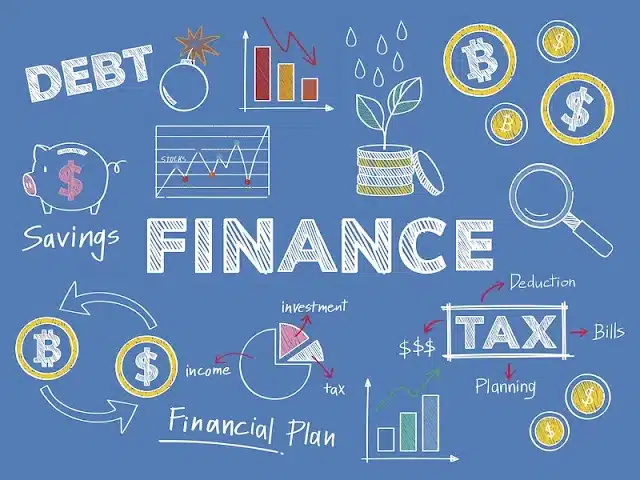Are you interested in a career in finance, but don’t know where to start? Don’t worry, you’re not alone! The world of finance can be complex and overwhelming, with many different career paths to choose from. In this guide, we’ll break down the basics of finance careers and help you navigate your way to the perfect job for you.
Understanding the Finance Industry
Before we dive into the specifics of finance careers, it’s important to understand what finance is and why it’s so important in the business world.
Defining Finance
Finance can be broadly defined as the management of money and investments. This includes everything from personal finance, where individuals manage their own money, to corporate finance, where businesses manage their finances and investments.
Importance of Finance in Business
Finance is essential to the success of any business, as it helps to manage the flow of money and investments. Some of the key areas where finance plays a critical role in business include:
- Budgeting and forecasting
- Financial reporting and analysis
- Investment management and analysis
- Risk management
- Cash flow management
Now that we’ve covered the basics of finance, let’s dive into the different career options available in this exciting industry.
Finance Career Options
If you’re interested in finance, you’ll be pleased to know that there are plenty of career options available in this dynamic field. From traditional finance roles to alternative finance careers, there’s something for everyone.
a. Traditional Finance Roles
Let’s start with the more traditional finance roles, which are often found in larger corporations or financial institutions.
- Accountant: As an accountant, you’ll be responsible for managing a company’s financial records, including preparing financial statements, monitoring budgets, and ensuring compliance with tax regulations.
- Financial Analyst: Financial analysts help companies make informed financial decisions by analyzing data, creating financial models, and providing investment recommendations.
- Investment Banker: Investment bankers help companies raise capital by underwriting and selling securities, such as stocks and bonds. They also provide merger and acquisition advice and assist with other corporate finance transactions.
- Financial Advisor: As a financial advisor, you’ll work with individuals to help them manage their personal finances, including investments, retirement planning, and insurance.
- Wealth Manager: Wealth managers work with high-net-worth individuals and families to help them manage their wealth and plan for the future.
b. Alternative Finance Careers
If you’re looking for something a bit more outside of the box, consider one of these alternative finance careers:
- Fintech Professional: Fintech professionals work for startups or established companies in the financial technology industry. They help develop new financial products and services, such as mobile payment systems, robo-advisors, and blockchain solutions.
- Risk Management Specialist: Risk management specialists help companies identify and manage potential risks to their business, such as financial, legal, or reputational risks.
- Actuary: Actuaries use statistical and mathematical models to assess the financial risks associated with insurance policies and other investments.
- Insurance Underwriter: Insurance underwriters evaluate insurance applications and determine the level of risk involved, as well as the premium rates that should be charged.
- Credit Analyst: Credit analysts assess the creditworthiness of individuals or companies applying for loans, credit lines, or other financial products.
No matter which finance career you choose, there are a few key skills and qualifications that you’ll need to be successful. Let’s take a closer look.
Qualifications Required for Finance Careers
Now that you know about the different finance career options available, let’s take a closer look at the qualifications you’ll need to succeed in the industry.
a. Education and Training
Most finance careers require a minimum of a bachelor’s degree in finance, accounting, economics, or a related field. However, some roles may require a master’s degree or additional certification. Here are some academic and professional qualifications to consider:
- Academic Qualifications: A bachelor’s degree in finance, accounting, economics, or a related field is usually the minimum requirement for most finance careers. A master’s degree in finance or business administration can also be helpful, especially for more senior roles.
- Professional Certifications: There are many professional certifications available for finance professionals. Some of the most popular include the Certified Public Accountant (CPA), Chartered Financial Analyst (CFA), and Financial Risk Manager (FRM) certifications.
b. Skills and Personal Qualities
In addition to formal education and training, there are certain skills and personal qualities that are essential for success in finance careers. Here are a few key ones to consider:
- Analytical Skills: Finance professionals must be able to analyze and interpret complex financial data to make informed decisions. Strong analytical skills are a must.
- Communication Skills: Finance professionals need to be able to communicate financial information to a variety of audiences, including colleagues, clients, and stakeholders. Clear and concise communication is key.
- Attention to Detail: Finance careers require a high level of accuracy and attention to detail. Even small errors can have significant financial consequences.
- Ethics and Integrity: Finance professionals must adhere to ethical standards and act with integrity. This includes ensuring compliance with regulations and avoiding conflicts of interest.
Remember, these are just a few of the qualifications you’ll need to succeed in finance careers. It’s also important to stay up-to-date with industry trends and regulations, and to continue learning and developing your skills throughout your career.
Finding and Securing Finance Jobs
Are you looking to start a career in finance? Here are some tips on how to find and secure the finance job of your dreams.
Job Search Strategies
The finance industry is competitive, and it can be challenging to find the right job. Here are some strategies to help you in your job search:
1. Networking
Networking is an essential part of finding a job in finance. Attend networking events and conferences, join professional organizations, and reach out to your network of contacts. Don’t be afraid to ask for referrals or to set up informational interviews with professionals in the industry.
2. Job Boards
Job boards can be a great resource for finding finance job openings. Websites like LinkedIn, Indeed, Glassdoor, and Monster are excellent places to start your search. Narrow down your search by using keywords such as “finance careers” or “investment banking.”
3. Recruitment Agencies
Recruitment agencies can help connect you with finance job openings that may not be advertised on job boards. Research and reach out to reputable agencies that specialize in finance recruitment.
Finance Job Interview Tips
Congratulations! You’ve landed an interview for a finance job. Here are some tips to help you prepare:
a. Preparing for an Interview
Research the company and the job you’re applying for. Review the job description and tailor your resume and cover letter to match the requirements. Practice your responses to common interview questions and prepare questions to ask the interviewer.
Common Interview Questions
Some common interview questions in the finance industry include:
- Why do you want to work in finance?
- What are your strengths and weaknesses?
- How do you handle stress?
- Tell me about a time when you had to work on a team.
- What are your long-term career goals?
Dos and Don’ts during Interviews
During the interview, make sure to dress professionally, arrive on time, and be polite and professional. Listen carefully to the interviewer’s questions and answer them honestly and thoughtfully. Avoid speaking negatively about previous employers or colleagues, and don’t exaggerate your qualifications or experience. Finally, remember to send a thank-you note or email to the interviewer after the interview.
With these tips, you’ll be well on your way to finding and securing a finance job that fits your qualifications and career goals.
Future Trends in Finance Careers
As technology continues to evolve and globalization becomes more prevalent, the finance industry is constantly changing. Understanding future trends in finance careers is crucial for professionals looking to remain relevant and successful in the field. In this section, we’ll explore some of the most significant trends that are shaping the future of finance careers.
Technological Disruptions
Technology is rapidly changing the way finance professionals work. As such, those in the industry need to be adaptable and prepared to incorporate new technologies into their work. Here are some technological disruptions that are impacting finance careers:
- Automation and AI: Many routine tasks such as data entry, report generation, and risk analysis can now be automated through the use of artificial intelligence (AI) and machine learning (ML) technologies. This trend is expected to continue, freeing up finance professionals’ time to focus on more complex tasks.
- Rise of Fintech: Financial technology, or fintech, is a growing industry that offers innovative solutions for financial services. Fintech companies often operate outside of traditional financial institutions and are disrupting the industry with new approaches to lending, payments, and investing.
- Blockchain and Cryptocurrency: Blockchain technology has the potential to transform financial transactions by improving transparency, security, and efficiency. Cryptocurrencies like Bitcoin have also gained popularity in recent years, creating new opportunities and challenges for finance professionals.
Impact of Globalization
As the world becomes more connected, finance professionals need to be knowledgeable about international markets and regulations. Here are some ways globalization is impacting finance careers:
- Cross-Border Finance: More companies are expanding their operations globally, creating a greater demand for finance professionals who can navigate cross-border transactions.
- Emerging Markets: Emerging markets, particularly in Asia and Africa, are becoming increasingly important for global businesses. Finance professionals who can understand and navigate these markets will be in high demand.
- International Regulations: International regulations, such as the General Data Protection Regulation (GDPR) and the Foreign Account Tax Compliance Act (FATCA), are increasingly complex and require finance professionals to stay up-to-date to remain compliant.
As you can see, the finance industry is constantly evolving, and it’s important to keep up with the latest trends and developments. By understanding these future trends in finance careers, you can position yourself for success in the years to come.
Conclusion
In this guide, we’ve covered a variety of finance career options, ranging from traditional roles like accountant and financial analyst to alternative careers like fintech professional and actuary. We’ve also discussed the education, training, and personal qualities required to excel in these roles. Additionally, we’ve explored the future trends that are likely to shape the finance industry and impact finance careers in the years to come.
If you’re interested in pursuing a career in finance, there are a few key takeaways to keep in mind:
- The finance industry offers a wide range of career options, so take the time to explore different roles and find one that aligns with your interests and skills.
- Education and training are important, and there are a variety of academic and professional certifications that can help you build the necessary skills and knowledge.
- In addition to technical skills, strong analytical and communication skills, attention to detail, and ethics and integrity are essential qualities for success in finance.
- Keep up with the latest technological disruptions and global trends in finance to stay ahead of the curve and position yourself for success.
By following these tips and staying informed about the latest developments in the finance industry, you’ll be well on your way to building a rewarding and fulfilling career in finance.












